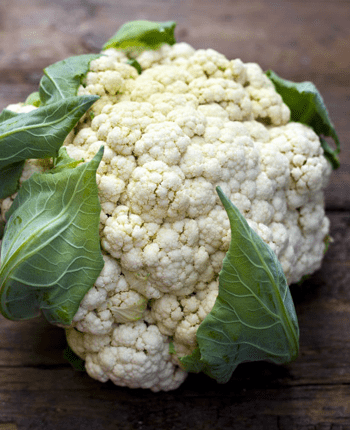
The wild cabbage is said to be the ancestor of the cauliflower. They have reappeared since 600 BC and had been an important vegetable in the Mediterranean region, especially in Turkey and Italy. It became popular in France in the middle of the 16th century and was subsequently cultivated in the British Isles and in Northern Europe. Today, cauliflower is cultivated in many countries all over the world.
There are many Mediterranean diet recipes that call for cauliflower as a main ingredient. The taste, texture, and color of cauliflowers can surely make many Mediterranean diet dishes distinctive and flavorful. If you are on a Mediterranean diet or if you just simply want to know about the various health benefits cauliflower can give you, here are some of them:
It Has Antioxidant Benefits
The cauliflower is an excellent source of vitamin C and of manganese which are core conventional antioxidants. The antioxidant support that the cauliflower is capable of giving goes beyond the matter of having the necessary nutrients but ventures into the realm of phytonutrients. Cauliflower is rich with key antioxidant nutrients like ceta-cryptoxanthin, cinnamic acid, caffeic acid, rutin, quercetin, ferulic acid, and kaempferol. With the presence of this broad spectrum of antioxidants, cauliflower can help lower the risk of oxidative stress in your cells. Chronic oxidative stress is a risk factor for the develop of many types of cancer. This means that cauliflower also lowers our risks for cancer in the process.
It Has Anti-Inflammatory Benefits
Cauliflowers provide us with omega-3 fatty acids, in the form of ALA or alpha-linoleic acid, and Vitamin K, two important anti-inflammatory nutrients. ALA is the building block for many of the most-widely used anti-inflammatory messaging molecules in the body while vitamin K is a key regulator of the body’s anti-inflammatory response. Glucobrassicin, a glucosinate with anti-inflammatory components, is also present in cauliflowers. When converted into an isothiocyanate molecule, this compound can prevent the initiation of inflammatory responses even at a very early stage.
Cardiovascular Support
In understanding the various cardiovascular diseases, it is important to keep in mind that unwanted inflammation creates problems for our blood vessels and blood circulation, which in turn, seriously affects a person’s cardiovascular health. Vitamin K and omega-3, together with other nutrients contained in cauliflowers, provide anti-inflammatory support and cardiovascular benefits to the human body. Cauliflowers have glucoraphanin, when converted into isothiocyanate, triggers anti-inflammatory activities in the cardiovascular system and may help prevent, even possibly reverse, blood vessel damage.
Digestive Support
Since cauliflower is very rich in dietary fiber, with nearly 12 grams of fiber for every 100 calories, it is a great choice of vegetable to give digestive support to the human body. Almost half of the daily dietary requirements can be given to you by cauliflower worth 200 calories.
The fiber contained in cauliflowers is not the only reason why they are good at supporting various digestive mechanisms. Researchers have found out that sulforaphane, made from a glucosinolate found in cauliflowers, can help protect the stomach’s lining. The said compound prevents the overgrowth of the bacteria Helicobacter pylori in the stomach.

